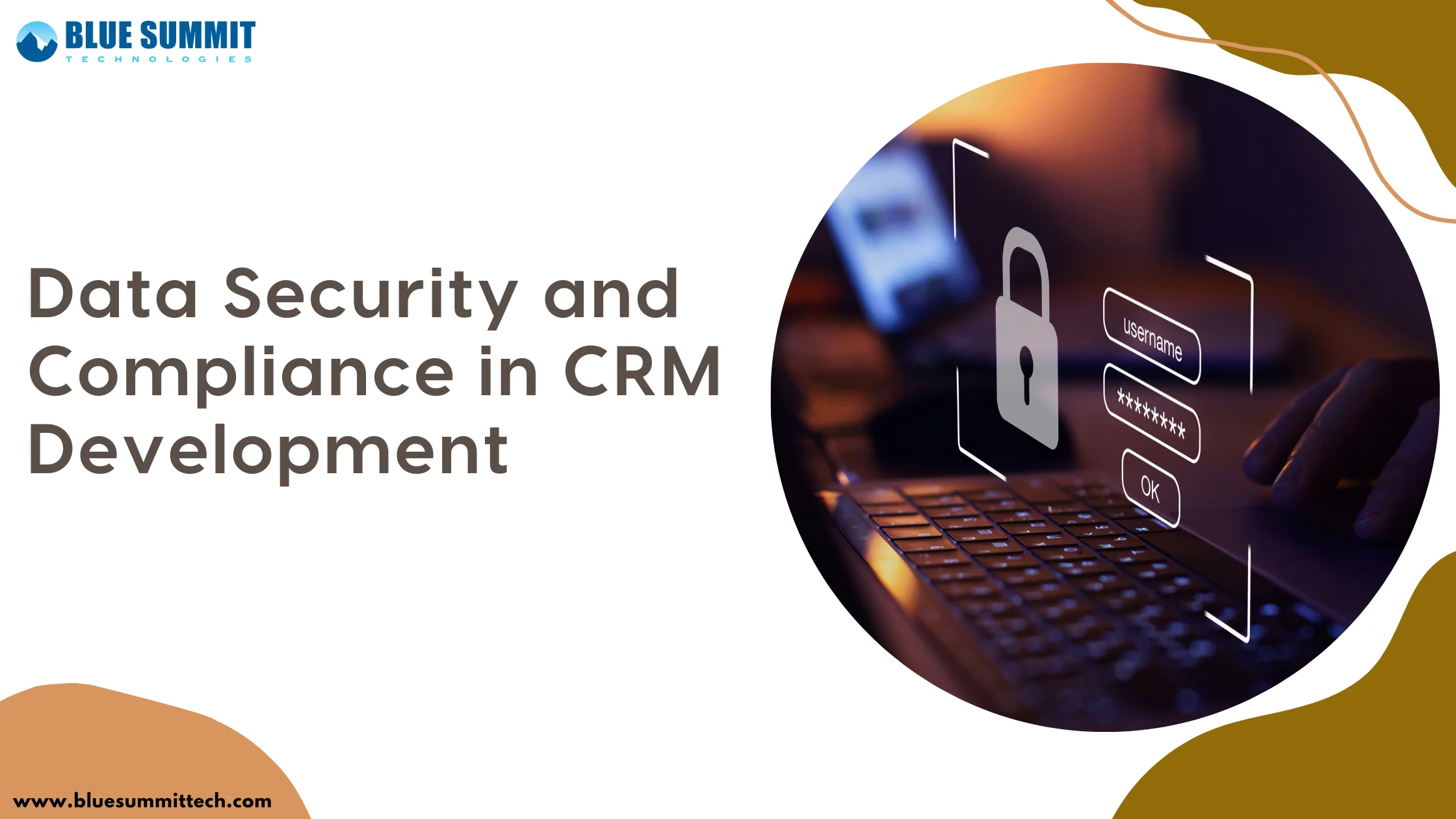
Posted on Sunday, Mar 24th, 2024
Safeguarding Customer Trust: Data Security and Compliance in CRM Development
In today's digital age, businesses are increasingly reliant on Customer Relationship Management (CRM) systems to manage and nurture their relationships with customers. These platforms store vast amounts of sensitive customer data, ranging from contact information to purchase history, making data security and compliance paramount concerns for businesses of all sizes.
Data breaches and regulatory non-compliance not only jeopardize customer trust but also expose organizations to significant financial and reputational damage. Therefore, implementing robust security measures and ensuring compliance with relevant regulations are essential components of CRM development.
Understanding the Risks
The first step in safeguarding customer data is understanding the risks involved. Threats such as cyberattacks, insider threats, and human error can compromise the integrity and confidentiality of CRM data. Additionally, businesses must navigate a complex landscape of data protection regulations, including the General Data Protection Regulation (GDPR), the California Consumer Privacy Act (CCPA), and industry-specific standards such as HIPAA for healthcare data.The Importance of Protecting Customer Data
In today's digital age, the protection of customer data is paramount for businesses across all industries. Safeguarding this information not only preserves trust and reputation but also ensures compliance with legal requirements and regulations. Let's delve deeper into why protecting customer data is of utmost importance:1. Trust and Reputation in Business
Customer trust is the cornerstone of any successful business. When customers share their personal information with a company, they do so with the expectation that it will be handled responsibly and securely. Failure to protect this data can lead to breaches of trust, resulting in damaged reputations, loss of customers, and negative publicity. Conversely, by demonstrating a commitment to data protection, businesses can cultivate a reputation for reliability, integrity, and customer-centricity, fostering long-term loyalty and positive brand perception.2. Legal Implications Data security and Compliance with Regulations
The legal landscape surrounding data protection is continuously evolving, with stringent regulations enacted to safeguard consumer privacy and prevent misuse of personal information. For instance, regulations such as the General Data Protection Regulation (GDPR) in the European Union and the California Consumer Privacy Act (CCPA) mandate strict requirements for the collection, storage, and processing of customer data. Non-compliance with these regulations can result in hefty fines, legal penalties, and reputational damage. Therefore, businesses must prioritize compliance efforts, implement robust data protection measures, and stay abreast of evolving regulatory requirements to avoid legal consequences.Common Risks to Customer Data in CRM
Customer Relationship Management (CRM) systems play a pivotal role in managing and leveraging customer data to enhance business operations. However, the vast amount of sensitive information stored within CRM databases also makes them prime targets for cyber threats. Understanding the common risks associated with customer data in CRM is essential for organizations to proactively safeguard their information assets. Here are two significant risks:1. Data Breaches and Their Consequences
Data breaches represent one of the most significant risks to customer data stored in CRM systems. A data breach occurs when unauthorized individuals gain access to confidential information, such as customer names, contact details, purchase history, and financial records. These breaches can result from various factors, including weak passwords, unpatched software vulnerabilities, insider threats, or sophisticated cyberattacks.The consequences of a data breach can be severe and far-reaching. Beyond the immediate financial losses and operational disruptions, organizations may face legal repercussions, regulatory fines, and irreparable damage to their reputation and customer trust. Moreover, the loss of sensitive data can lead to identity theft, fraud, and other forms of cybercrime affecting both customers and the business itself.
2. Integration and Third-Party Service Vulnerabilities
Many organizations integrate their CRM systems with other applications and third-party services to enhance functionality and streamline business processes. While these integrations can offer significant benefits, they also introduce additional vulnerabilities to customer data security.Third-party services may not always adhere to the same rigorous security standards as the primary CRM system, potentially exposing sensitive data to unauthorized access or compromise. Additionally, misconfigurations or vulnerabilities in integration points between different systems can create opportunities for attackers to exploit and infiltrate CRM databases.
To mitigate these risks, organizations must carefully vet and monitor third-party service providers, ensuring they implement robust security measures and adhere to compliance standards. Regular security assessments and audits of integration points can help identify and address potential vulnerabilities before they are exploited by malicious actors.
Implementing Security Measures
To mitigate these risks, CRM developers must adopt a multi-layered approach to data security. This includes implementing robust encryption protocols to protect data both at rest and in transit, as well as implementing access controls and authentication mechanisms to ensure that only authorized personnel can access sensitive information.Regular security audits and vulnerability assessments are also crucial for identifying and addressing potential weaknesses in the CRM system. Furthermore, educating employees about security best practices and implementing strict data handling policies can help minimize the risk of human error and insider threats.
Ensuring Compliance
In addition to implementing security measures, CRM developers must also ensure compliance with relevant data protection regulations. This includes obtaining explicit consent from customers before collecting their personal data, providing mechanisms for data subjects to access, correct, or delete their information, and maintaining detailed records of data processing activities.Furthermore, businesses must be prepared to respond to data breaches in a timely and transparent manner, notifying affected individuals and regulatory authorities as required by law. Failure to comply with these regulations can result in severe penalties, including fines and legal action.
Conclusion
Data security and compliance are non-negotiable aspects of CRM development. By implementing robust security measures and ensuring compliance with relevant regulations, businesses can safeguard customer trust and mitigate the risk of data breaches. Moreover, prioritizing data security and compliance not only protects customers' privacy but also enhances the reputation and credibility of the organization in an increasingly competitive marketplace.Reach out to us to ensure your organization's protection against data breaches and leaks.
Blue Summit has collaborated with OdiTek Solutions, a frontline custom software development company. It is trusted for its high service quality and delivery consistency. Visit our partner's page today and get your business streamlined.
REFER TO OTHER RELEVANT CONTENTS

Crystal Reports Development
SAP SE now promotes Crystal Reports, a business intelligence tool, to small firms. From a variety of data sources, it is utilized to develop and produce reports. Users of Crystal Reports may visually design the data connection(s) and report structure. Users may choose and link...
read more







